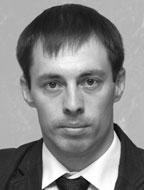Wrestling based physical education model for mental and volitional conditioning of general education school children
Фотографии:
ˑ:
Postgraduate S.A. Baluev1
Postgraduate V.N. Timofeev2
1Perm State Humanitarian and Pedagogical University, Perm
2Tchaikovsky State Institute of Physical Culture, Tchaikovsky
Objective of the study was to analyze benefits of a wrestling based physical education model for the mental and volitional conditioning of the general education school children. Modern wrestling offers a great potential for self-improvement, self-expression and self-assertion so important in the school age, with good willpower developed in the practices being useful for coping with the objective and subjective challenges. Success of the willpower building process in the school lessons was found to directly depend on the individual progress in the wrestling techniques albeit the learning and wrestling skills mastering process may be challenging for many school students. The challenges in the technical training process shall be tackled starting from the right perceptions of the wrestling actions and skills being mastered. A special attention in the mental and volitional qualities building process shall be made on the natural interrelations and interdependencies of the target qualities to harmonically develop due activity, self-reliance, determination, initiative, decisiveness, persistence, courage, self-control and self-confidence in every trainee; with a special priority given to the individual discipline that shall be cultivated from the very first lessons. Modern wrestling sport helps shape up the right world outlooks; facilitate the intellectual, aesthetic and volitional progress of the young people; improve health; build up body and physical qualities and abilities; obtain a profound special knowledge; and develop good technical and tactical skills in trainees.
Keywords: wrestling, volitional qualities, mental status, willpower, trainees.
References
- Andrianov M.V. Tekhnologiya fizicheskogo vospitaniya shkolnikov 2-4-h klassov s ispolzovaniem universalnykh sredstv sportivnoy borby. Dis. kand. ped. nauk [Physical education technology for 2-4 grades using universal wrestling techniques. PhD diss.]. Kolomna, 2015, 178 p.
- Beresneva M.L., Nikishina E.E. Elementy edinoborstv kak tretiy urok fizicheskoy kultury [Elements of martial arts as the third PE lesson]. ChSU publ.. Cherepovets, 25 p.
- Lubysheva L.I., Zagrevskaya A.I., Peredelskiy A.A. et al. Sportizatsiya v sisteme fizicheskogo vospitaniya: ot nauchnoy idei k innovatsionnoy praktike [Sportization in physical education system: from scientific idea to innovative practice]. Moscow: Teoriya i praktika fizicheskoy kultury i sporta publ., 2017, 200 p.
- Modernizirovannaya programma po volnoy borbe dlya DYuSSh i SDYuSShOR [Upgraded freestyle wrestling program for CYSS and SCYSSOR]. Krasnoyarsk, 2012, 194 p.
- Obrazovatelnaya programma po volnoy borbe [Freestyle wrestling educational program]. Cheboksary, 2013, 188 p.
- Oyama M. Klassicheskoe karate [Classical karate] [Transl. Engl. M. Novysh]. Moscow: Expo publ., 2006, 256 p.
- Savenkov G.I. Psikhologo-pedagogicheskoe vozdeystvie na cheloveka v sisteme sportivnoy trenirovki (Psikhologicheskaya podgotovka sportsmena). Uchebnoe posobie dlya prepodavateley IFK [Psychological and pedagogical effect on individual in sports training system (Athlete’s mental conditioning). Study guide for IPhC teachers]. Moscow, 2001, 114 p.
- Tumanyan G.S. Sportivnaya borba: teoriya, metodika, organizatsiya trenirovki. Uchebnoe posobie. V 4 kn. Kn. 1. Propedevtika [Wrestling: theory, methods, training process. Study guide. In 4 books. Book. 1. Propedeutics]. Moscow: Sovetskiy sport publ., 1997, 288 p.




 Журнал "THEORY AND PRACTICE
Журнал "THEORY AND PRACTICE